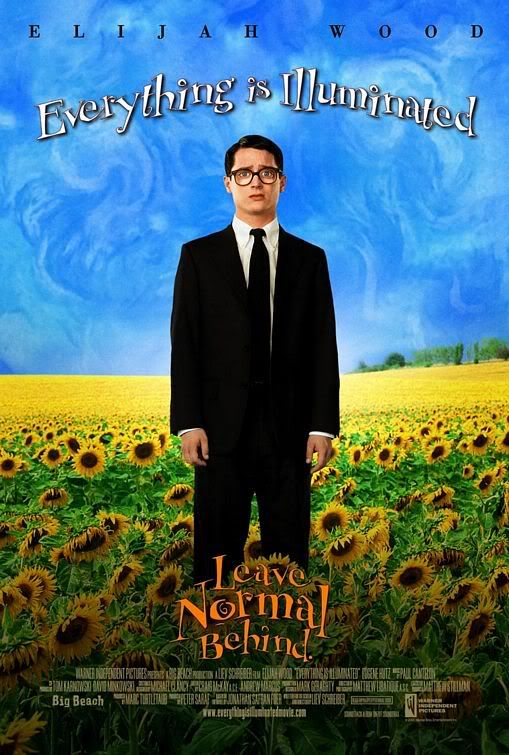Everything Is Illuminated Book
Everything Is Illuminated proposes the possibility of a "did
and didn't" duality, of things being one way and also the opposite way.
Rather than aligning itself with either "how things were" or "how things
could have been", the novel measures the difference between the two,
and by so doing attempts to reflect a kind of experiential (rather than
historical or journalistic) truth. Novels don't strive to get to the
bottom of things, but to express what it's like never to be able to. The
climax of the book, for me, is not when the Nazis raid the shtetl
but when the two braids of the novel – Jonathan's fantastical history,
and Alex's more realistic travelogue — are forced to confront one
another. The writing and structure received critical acclaim for the manner in
which it switches between two story arcs: (1) fragments of
Foer-the-character's novel-in-progress, where he tells in highly
literary English a quasi-magical story about the citizens of
Trachimbrod; and (2) a straightforward narrative of searching for
Trachimbrod (an invented name for the real village Trochenbrod), as told by Alex in broken English.








No comments:
Post a Comment